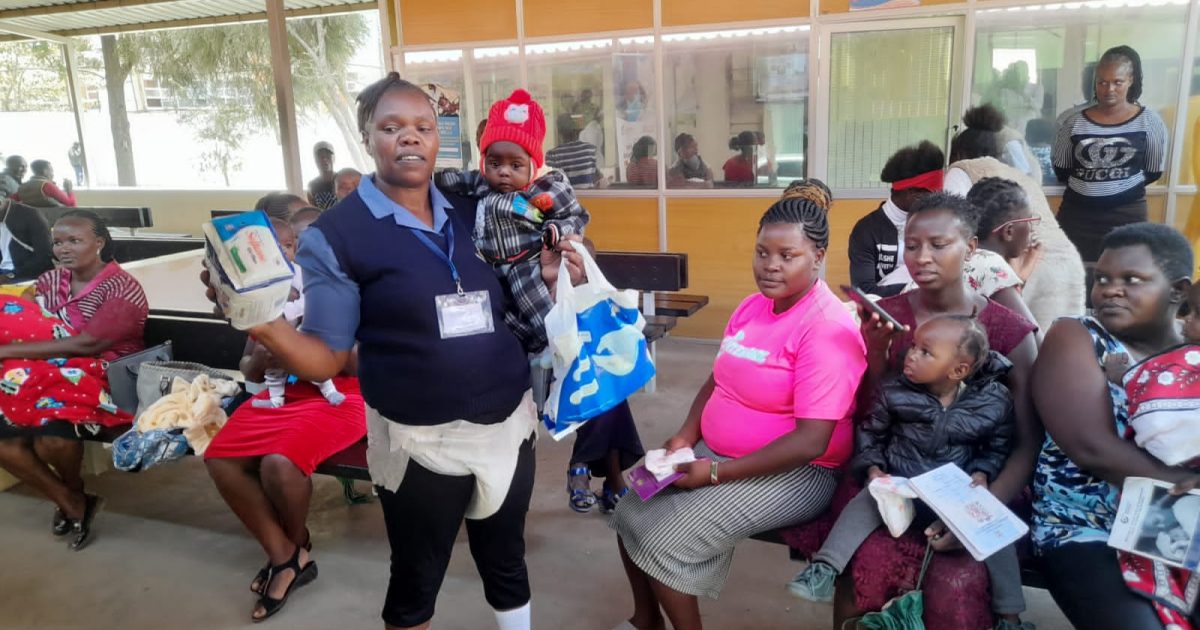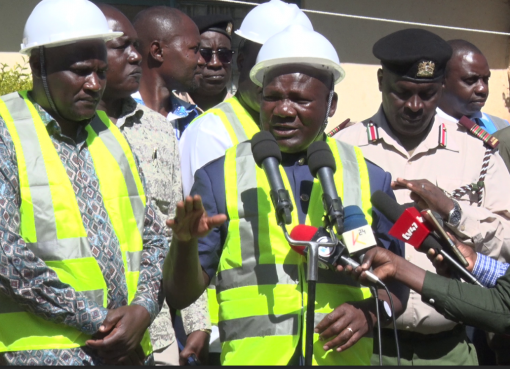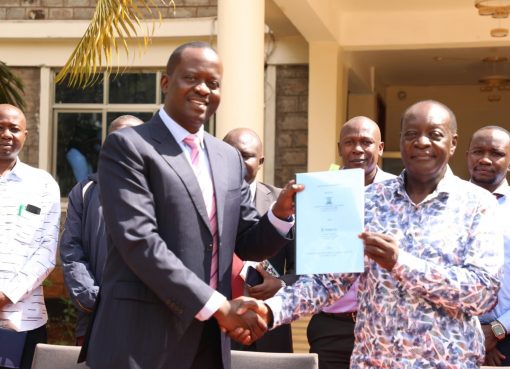Fistula is a devastating condition that manifests itself as an abnormal communication between the urinary bladder and birth canal, which leads to uncontrolled, continuous leakage of urine or fecal matter.
Ms. Faith Maiyo, a thirty-year-old student at Kenya Medical and Training College (KMTC) Ugenya pursuing a diploma in health records has turned out to be a Fistula ambassador after recovering from the disease.
Maiyo moves from hospital-to-hospital sensitizing people on the disease and encouraging women to volunteer for check-ups so that they can receive early treatment.
KNA met with Maiyo at the Narok County Referral Hospital sensitizing women in the Maternity wing on the disease as she shared her experience. “In 2015 I gave birth and afterwards developed Fistula. Initially, I had not heard of the disease so I suffered in silence,” she says.
“I first thought it was normal for urine to flow without control after giving birth, so I didn’t find it necessary to share my condition with anyone,” she recalls.
The situation became worse when she could neither control her urine nor stool, making her keep off from society and live a lonely life. “No one was willing to associate with me because of my condition. My husband also left me for other women. It was a very painful experience,” she says.
However, after suffering in silence for three years, she decided to disclose her condition to a nurse working at Kijabe Mission Hospital. The nurse encouraged her that the situation could be rectified as many other women had been healed of the same. She also connected her to a donor who was to pay for her treatment.
“Today, I move from hospital-to-hospital sensitizing women on Fistula because I know the ordeal I underwent in silence. The situation was so painful that I don’t want any other woman to suffer in silence,” she explains.
She also called on the members of the public not to discriminate against patients with fistula but instead encourage them to seek medication so that their situation can be rectified.
At the Narok County referral hospital, Maiyo says she met two patients with Fistula who she encouraged to have faith in their healing and donated diapers and lessos to them.
The young medic who moved around the hospital in a diaper, donated lessos and diapers to the women in the maternity ward as she encouraged them to sensitize women in the villages on Fistula.
“I call upon the government to offer Fistula treatment free of charge as many women cannot afford to pay the hospital bill. A lot of sensitizations should also be done so that our women will not suffer in silence,” she reiterates.
“I have used my own pocket money and savings to buy diapers and lessos for women in the maternity wing. This is because I want to sensitize them to Fistula and encourage them to come for treatment,” she says.
Soyian Pere, a Fistula patient, thanked Ms. Maiyo for encouraging them and sensitizing the public on the disease that had affected many women in silence. “I discovered something was wrong a month after I delivered my first-born child. My family brought me to hospital and I thank God that I am recovering well,” she said.
Pere says managing the disease is expensive as one requires to keep changing diapers and maintain cleanliness all the time.
Dickson Ongaki, a medic working at the Reproductive Health Department in Narok County Referral Hospital says the disease occurs mostly during birth.
Ongaki said Fistula patients will complain of inability to control stool or urine especially after giving birth or after undergoing a nasty sex experience.
The most affected gender, he says, is women and in rare circumstances it also affects males who have been sodomized or homosexuals adding that the most affected are teenage boys.
“We have formed groups of survivors, those who have successfully gone through the repair and now they are our champions back in the society,” he says.
Ongaki is urging all affected persons to avail themselves to hospitals for treatment because the Fistula Foundation, a worldwide organization, is engaged in creating a countrywide treatment network to provide patients with free surgery and thereby help the patients as they fight the disease.
He says the hospital offers free surgery to Fistula patients on Fridays and called on the members of society to take Fistula patients to hospital.
By Ann Salaton and Joshua Kuyo





